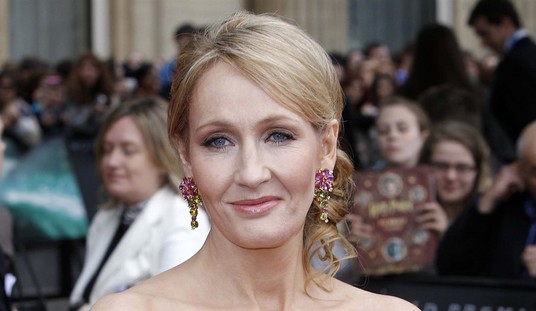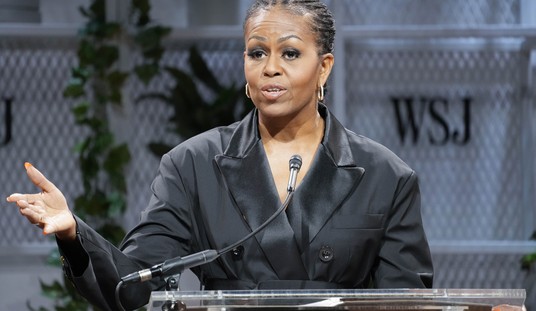If the Catholic Church wants to gain credibility in handling its abuse crisis, it needs to start getting ahead of law enforcement in creating transparency. Illinois became the third state, following Pennsylvania and Minnesota, to impose transparency from the outside. A new report from Attorney General Lisa Madigan alleges that the church shielded five hundred priests who had been accused of sexual abuse:
The Catholic Church in Illinois withheld the names of at least 500 priests accused of sexual abuse of minors, the state’s attorney general said Wednesday in a scathing report that accused the church of failing victims by neglecting to investigate their allegations.
The preliminary report by Attorney General Lisa Madigan concludes that the Catholic dioceses in Illinois are incapable of investigating themselves and “will not resolve the clergy sexual abuse crisis on their own.”
So far, that certainly seems to be the case. The dioceses in Illinois had made 185 names public as priests credibly accused of sexual abuse. Madigan’s investigators went through church records and found out that the actual number was 690. Another 45 names were disclosed during the investigation, but the rest remained locked within church records. The difference is how “credible” was defined:
Three-fourths of the allegations against clergy were either not investigated, or were investigated but not substantiated by the dioceses, the report found, based on files that the dioceses turned over to the attorney general’s office.
A pattern emerged from the files in which dioceses often failed to find a claim credible if there was only one victim, the report said. They also failed to investigate at all if the accused priest was deceased or reassigned, or belonged to a religious order (such as the Franciscans, Marists or Jesuits). The dioceses often discredited survivors’ claims by “focusing on the survivors’ personal lives,” the report said.
Madigan’s report is preliminary and brief, only nine pages, and it doesn’t disclose any names either — at least not yet. That may be in part because the Catholic Church cooperated with investigators and allowed access to all records of complaints about abuse. Madigan may wait to see just how far Catholic leaders will go in making this public themselves. Cardinal Blaise Cupich, leader of the archdiocese of Chicago, pledged cooperation and active efforts to assist victims and prevent further abuse:
“I want to express again the profound regret of the whole church for our failures to address the scourge of clerical sexual abuse. It is the courage of victim-survivors that has shed purifying light on this dark chapter in church history. Their bravery spurred my predecessor Cardinal Joseph Bernardin to establish an archdiocesan Special Commission in 1991 to examine this terrible crisis, and to develop a robust set of procedures to protect young people from predators and to establish supportive services for victim-survivors and their families. Those efforts continue today in the Archdiocese of Chicago’s Office for the Protection of Children and Youth, which is staffed by lay professionals with backgrounds in investigative services, education, social work, and therapeutic services. They work daily to protect and heal. There can be no doubt about the constant need to strengthen our culture of healing, protection, and accountability. While the vast majority of abuses took place decades ago, many victim-survivors continue to live with this unimaginable pain.”
The statement notes that the report’s lack of specifics (at the moment) prevents Cupich from knowing how much of this relates to the archdiocese of Chicago. However, one has to assume that the church still has those records on hand and can determine that rather quickly on their own. The statement also includes a number of initiatives put into practice by the archdiocese to deal with the crisis. It doesn’t note that Cupich and fellow Cardinal Donald Wuerl had teamed up on a proposal to launch a lay-led national panel to deal with these issues — before Wuerl’s resignation over the Pennsylvania grand-jury report. Regardless, this was a good idea and Cupich should continue to pursue it.
Meanwhile, Pope Francis accepted the resignation of Bishop Alexander Salazar of Los Angeles thirteen years after determining that an allegation of abuse was credible, although law enforcement declined to pursue it at the time:
Pope Francis has accepted the resignation of Los Angeles auxiliary bishop Monsignor Alexander Salazar, following allegations of misconduct with a minor in the 1990s.
The Vatican announced the resignation in a statement Wednesday. It was the latest in a string of cases of alleged misconduct against bishops to come to light this year, following the scandal of ex-Cardinal Theodore McCarrick.
The current archbishop of Los Angeles, Most Rev. Jose Gomez, said the archdiocese was made aware of the claim in 2005, which law enforcement had declined to prosecute, but that the archdiocese forwarded the complaint to the Vatican office that handles sex abuse cases.
Better late than never? Not really, no, although perhaps this time the belated move comes from an unexpected abundance of caution. Catholics had better get ready for more of these reports. The New York Times reports that 16 other states have launched similar probes, and with the church slow to open its books, those hits will just keep comin’.








Join the conversation as a VIP Member